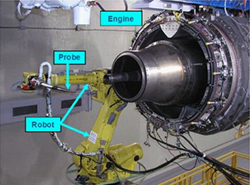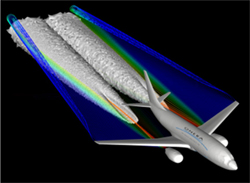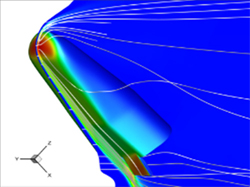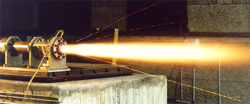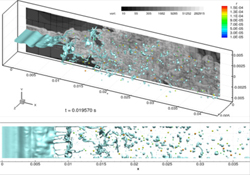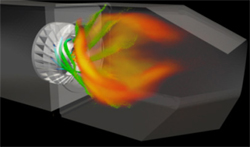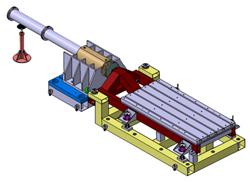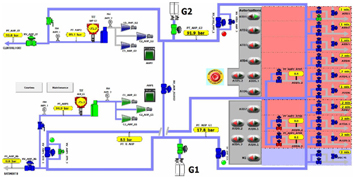DMPE - Research units
CMEI | HEAT | LPF | MH | PLM | SRE
Chemistry of energetic Materials, Emissions and environmental Impact (CMEI)
CMEI is in charge of the investigation and research on solid energetic materials as well as liquid propellants and liquid fuels. The research unit is also studying the impact of aviation on environment, including the characterization of emissions from aircraft and their transformation into the atmosphere, on the ground or in cruise.
The solid propellant activities, focused on formulation, characterization and safety, are applicable to rocket propulsion in the military and space domains. Studies on liquid fuels, including alternative fuels, include detailed analysis, thermal stability, cold behavior, and material compatibility for missiles and aircraft. The work on emissions concerns the near environment of civil and military aircraft. The characterizations focus on nucleation and soot formation, while the modeling and simulation work deals with airport air quality and contrails.
CMEI also carries out expertise, for example in the implementation of certification protocols for aircraft engines, fuels and the associated deployment of complex measurement chains on emissions.
High Energy, Aerothermals and Turbulence (HEAT)
HEAT develops and calibrates turbulence models, characterizes complex thermal phenomena like fire resistance and composite materials degradation. It also models very high energy flows around vehicles in the atmospheric re-entry phase. The general objective is to establish and validate models to be integrated in the CFD software for simulating complex and realistic cases which are of interest to manufacturers.
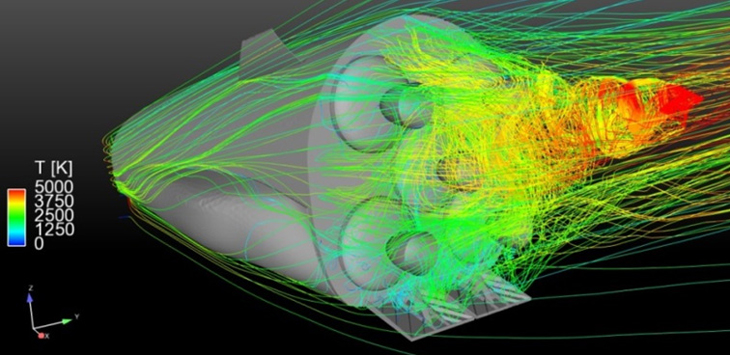 Rescue capsule of the extreme long-haul hypersonic SPACELINER for Mach 20 flight point
Rescue capsule of the extreme long-haul hypersonic SPACELINER for Mach 20 flight point
Rocket propulsion laboratory (LPF)
LPF is tasked for identifying, understanding and analyzing the physical phenomena taking place in space and military thrusters in order to make them manageable and capable of being modelled digitally. It possesses unique installations for testing solid, liquid or hybrid propellants.
Heterogeneous Multiphasics (MH)
MH conducts work on interfacial flows, phase change phenomena, dispersed phase flows, liquid wall interactions, coupling with combustion. Its activities are focused on improving combustion chambers (atomization, ignition, combustion instabilities) and flight safety in icing conditions. On this last point, MH participates in many national or European projects and works in collaboration with NASA. MH develops and implements experimental and numerical means to develop models that are then integrated into dedicated codes.
Multi-physical software platform for energy (PLM)
PLM coordinates and integrates developments in the CEDRE software platform. It is in charge of the general architecture of the software, contributes to developments and ensures the production of different versions of the code for internal and external needs. PLM contributes punctually to applications, in particular those requiring new software functionalities.
Research support (SRE)
SRE assists the other units of the department in the development, adaptation and implementation of test resources and optical diagnostics. It studies and sizes the new facilities and contributes to their implementation, for both the measurement and fluid aspects.


